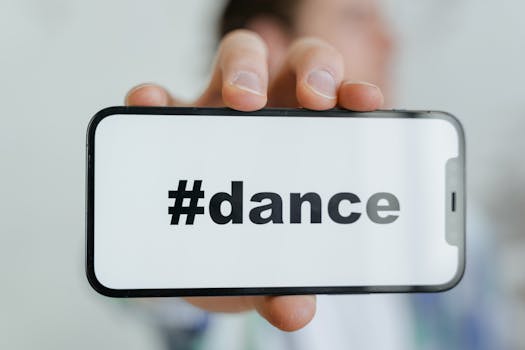PWG Business News: Your Gateway to Market Intelligence
PWG Business News is committed to providing real-time updates and expert-driven insights across various industries, including technology, healthcare, finance, energy, automotive, and consumer goods. We deliver carefully curated news, financial reports, and research-based updates, helping businesses and professionals stay informed and competitive in today’s dynamic business environment.
Our News section covers industry-shaping events such as market expansions, new product launches, mergers and acquisitions, policy shifts, and corporate earnings, offering a strategic advantage to decision-makers seeking actionable intelligence. By bridging industry leaders, stakeholders, and professionals with data-driven content, we empower our audience to navigate the complexities of the global market with confidence.
PWG Business News: Keeping You Ahead in the Business World
At PWG Business News, we deliver timely and credible business news, covering global market trends, economic shifts, and emerging opportunities. With comprehensive coverage spanning healthcare, technology, telecommunications, utilities, materials, chemicals, and financials, our platform provides accurate, well-researched insights that drive success for executives, investors, and industry professionals alike.
Whether you're tracking regulatory updates, innovation trends, or strategic collaborations, PWG Business News ensures you have access to high-quality, data-backed reports that enhance brand visibility, credibility, and engagement. Our mission is to keep you ahead by serving as your trusted source for impactful industry news and market intelligence.
Stay informed with PWG Business News – your gateway to the insights that shape the future of business.
Communication Services

A recent revelation has raised significant national security concerns regarding a Signal group chat involving top Trump administration officials, including Steve Witkoff, who was in Russia at the time. Witkoff, the special envoy for Ukraine and the Middle East, claims he did not have a personal or government-issued phone with him during his visit to Moscow. This development has brought into focus the use of commercial messaging apps by government officials to discuss sensitive information, despite warnings about potential security risks, especially from Russian hacking attempts.
The Signal group chat, named "Houthi PC small group," was formed to discuss a U.S. military operation against the Houthis in Yemen. However, the chat inadvertently included Jeffrey Goldberg, the editor-in-chief of The Atlantic, leading to a leak of sensitive information. The U.S. government has explicitly warned against using apps like Signal for classified communications due to security vulnerabilities and potential hacking by Russian groups.
Witkoff arrived in Moscow on March 13 and met with Russian President Vladimir Putin until early the next morning. During this period, Witkoff was added to the Signal group chat, although he did not participate in discussions until after leaving Russia. The White House maintains that Witkoff was provided a secure device for communication and did not possess any other phones during his visit. This claim is crucial, as it underlines the potential risk of sensitive information being accessed if Witkoff had used an insecure device in Russia.
The use of Signal for sharing sensitive information has been frowned upon by the U.S. government due to security concerns. Here are some key points regarding the security situation:
Signal's Security Features: Signal offers end-to-end encryption, which is considered secure for private conversations. However, experts caution that the security risk lies not in the app itself but in the devices used to access it. Russia has been actively trying to compromise Signal accounts, particularly those used by individuals of interest to Russian intelligence services[2].
Department of Defense Policy: The DoD has issued memos emphasizing that third-party messaging apps like Signal and WhatsApp are not authorized for handling non-public DoD information. These policies highlight the vulnerabilities associated with using commercial apps for official communications[1].
Russian Hacking Attempts: Recent warnings from the Google Threat Intelligence Group and Ukraine's cyber defense agency indicate increasing efforts by Russian-aligned threat actors to target Signal users. This includes compromising accounts to send malware to defense industry employees[2].
The revelation has sparked widespread concern among lawmakers from both parties, who are questioning why such sensitive discussions were conducted on a commercial platform. Key questions include:
Why Signal? Despite the warnings against using Signal for classified information, officials chose this platform, which could jeopardize national security.
Public Record Laws: Experts worry about the potential violation of public record laws due to the chat's disappearing messages feature. This raises questions about the preservation of critical communications records[1].
White House Response: The White House has defended Witkoff's actions, stating that he was provided with a secure communication device. However, the incident highlights the need for stricter policies on secure communication channels[1].
This incident could lead to a re-evaluation of how government officials communicate sensitive information, possibly prompting stricter regulations on using commercial messaging apps for official business. Here are some potential policy changes and related concerns:
Stricter App Usage Guidelines: The government might enforce stricter guidelines on which apps can be used for official communications to prevent similar incidents in the future.
Enhanced Device Security: There could be increased emphasis on ensuring devices used by government officials, especially those handling sensitive information, are thoroughly secured against hacking attempts.
Review of Public Record Laws: There may be a need to revisit public record laws to ensure that official communications, even those on encrypted platforms, are properly preserved and accessible as needed.
The situation involving Steve Witkoff and the Signal group chat highlights critical security vulnerabilities in using commercial messaging apps for sensitive government communications. As the U.S. continues to navigate complex geopolitical relationships with countries like Russia, ensuring the security of official communications channels is paramount. The incident underscores the importance of adhering to cybersecurity guidelines and using secure communication platforms to protect national security interests.
In conclusion, while the White House maintains that Witkoff followed proper protocols during his visit to Russia, the broader implications of this incident will likely lead to a closer examination of security practices within the Trump administration and beyond. The use of apps like Signal for official business poses significant risks, and addressing these issues proactively will be essential for maintaining national security standards in the digital age.